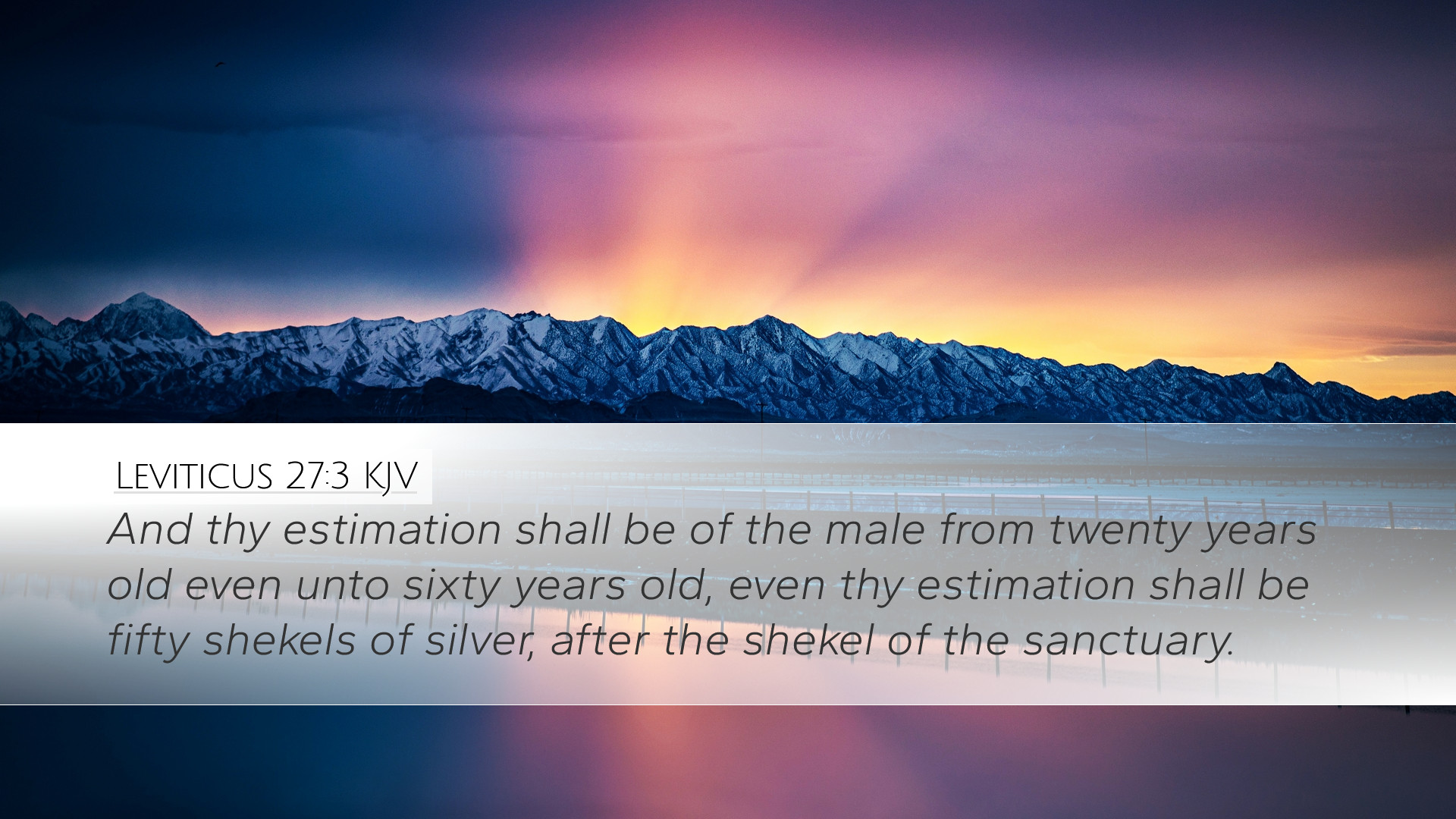Commentary on Leviticus 27:3
Leviticus 27:3 states: "And your estimation shall be of the male from twenty years old even unto sixty years old, even your estimation shall be fifty shekels of silver, after the shekel of the sanctuary." This verse is part of a legislative framework that deals with vows and offerings, specifically focusing on the valuations placed upon people given to God through dedicated service or as a form of sacrifice.
Contextual Background
The overarching theme of Leviticus is holiness and how the Israelites were to live in a manner that reflected their covenant relationship with God. In this chapter, the various assessments of value underscore the seriousness of dedicating oneself to the Lord's service, whether through a vow or as an act of devotion.
Interpretation and Insight
According to Matthew Henry, the valuation mentioned in this verse serves to highlight the importance of human life and the sacredness of dedication. By assigning a monetary value to those dedicated to the Lord, it indicates that no life is to be taken lightly, and every individual holds significance in the economy of God's kingdom.
Albert Barnes elaborates that this valuation not only reflects the socio-economic structure of ancient Israel but also affirms that sacred commitments have material implications. The fifty shekels mentioned delineates a standard that emphasizes accountability in one's offerings, both spiritually and materially.
Adam Clarke offers a pastoral perspective, suggesting that the valuation could also serve as an incentive for moral uprightness and commitment among the people. The evaluation is tied to the age group of twenty to sixty, which highlights the prime years of service individuals are expected to render, reminding us that our dedication should be sustained and intentional during our productive years.
Theological Significance
This passage highlights the principle of stewardship and dedication in the Christian life. The concept of value attributed to a person reflects the understanding of one's worth within the covenant of grace. The New Testament further confirms this notion, as believers are called to present themselves as living sacrifices (Romans 12:1), embodying the same weight of commitment crucial in Leviticus.
Key Themes Explored
- Valuation of Life: The scripture emphasizes the value of human life in God's economy, proposing that our dedications have lasting implications.
- Accountability: The specified monetary value suggests that personal commitments to God require a sense of seriousness and accountability.
- Covenant Commitment: The verse resonates with the larger narrative of covenant fidelity, urging the faithful to consider what they are willing to commit to God.
Practical Application
For pastors and theologians, Leviticus 27:3 serves as a reminder of the necessity for transparency and integrity in congregational commitments. It represents an opportunity for teaching about the seriousness with which we ought to approach our vows to God, encouraging believers to reflect on how their commitments align with their faith. Students of the scripture should explore the implications of valuing human life in a broader context, drawing parallels between Old Testament principles and New Testament applications of grace and sacrifice.
Conclusion
In summary, Leviticus 27:3, while situated in an ancient legal framework, still holds powerful insights for today's believers. From the valuation of life to the serious nature of vows, this text calls for a reflective examination of our own commitments to God. Each individual, whether in ministry or personal faith, must consider their role in the larger narrative of God's covenant and how they represent the values depicted in scripture.


